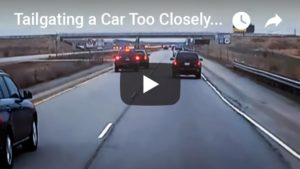Following-too-closely, aka Tailgating, is the most often cited cause of car accidents in Virginia. Here are a few tips on how to break the habit.
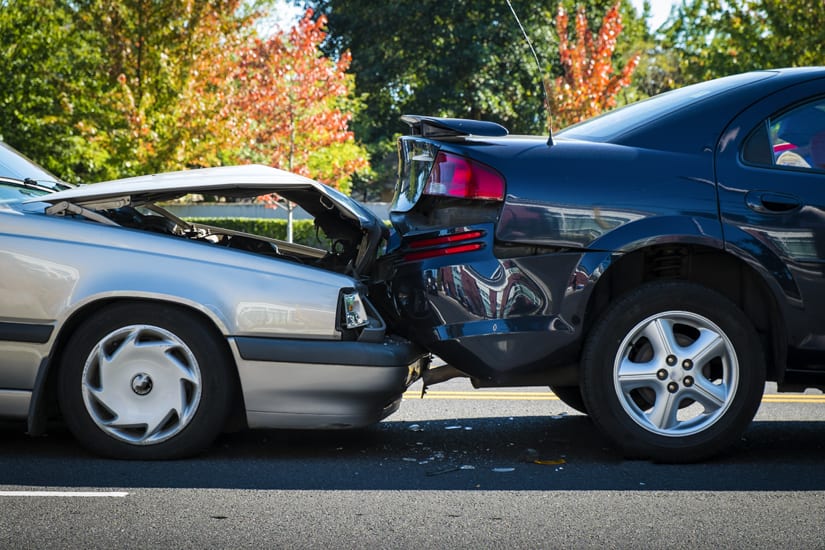
This is the first of a series aimed at helping Virginians become (even) better drivers.
Traffic is a nuisance that most of us have to deal with, sometimes on a daily basis, so it’s not a surprise that we tend to be impatient drivers. According to the Virginia Department of Motor Vehicles, 2018 saw 131,848 car crashes, and being-in-a-rush factors into all of the top 5 causes. The number one cause of crashes — following too close — is almost double the runner-up (failure to yield).
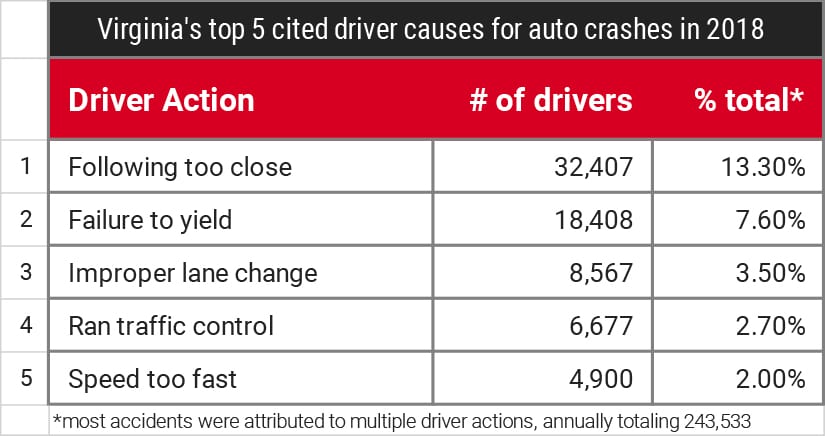
Tailgating is a bad idea for many reasons — whether it’s unconscious or calculated, it can terrorize other drivers and escalate road rage. Some people think it’s effective for signaling the lead driver that they are driving too slowly, or as a method of limiting passing, but studies show that whatever the intent, it won’t get you there quicker. Instead it’s a dangerous habit.
Watch this YouTube video from Inside Edition to see how rapidly things can go wrong.
Following too close is against the law on its own in Virginia, though the discretionary language in the statute makes enforcement difficult. However, regardless of whether or not a driver will get a ticket, we know it’s the leading cited cause of accidents, and from a Personal Injury litigation perspective, tailgating is a definite way to make sure you’re on the wrong side of a case.
What’s a safe following distance?
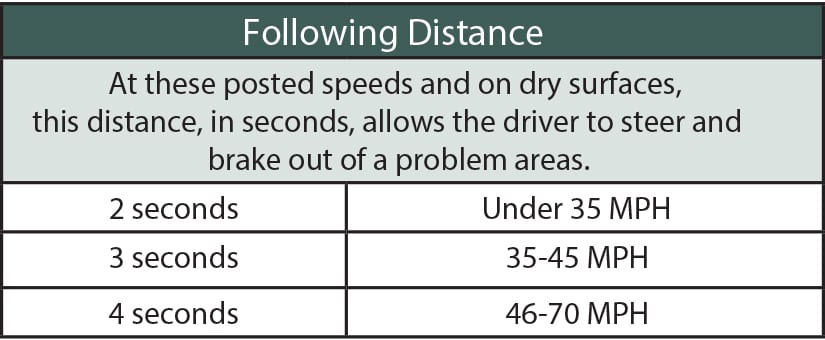
The Virginia Driver’s Manual says to use the 2, 3, and 4 second rule: start counting seconds from when the vehicle in front passes a fixed object — a road sign for example — until you reach the same spot. The Virginia DMV also advises making sensible adjustments: “For bad weather conditions, heavy traffic, poor pavement, or if your vehicle is in poor condition, add extra seconds to increase your following distance.”
Tailgating actually causes traffic jams.
If you find yourself unconsciously riding the bumper ahead of you, a little mindfulness goes a long way. It also helps to know the science — it might seem counterintuitive, but leaving more space between cars actually speeds up traffic and can eliminate traffic jams. We’ve all been ‘parked’ on the interstate, lurching intermittently, only to work through the mess and find no evidence of obstacle or disruption. Traffic experts call this a shockwave traffic jam. What starts as a minor tap on the brakes causes a wave of compression that gets worse as it moves from vehicle to vehicle backwards through tightly-spaced traffic. What’s most frustrating about this type of stop-and-go traffic is that it’s entirely unnecessary, if not for the impulse to tailgate. When vehicles have more space, traffic flows more smoothly, –and the benefit isn’t small. As reported in Forbes, researchers at MIT’s Computer Science & Artificial Intelligence Lab have published a paper suggesting travel times could be cut in half just by just increasing the distance between vehicles!
A few tips to help break the tailgating habit:
- Leave earlier. When you’re not late, you’re less anxious about getting there, and it’s easier to accept a slowdown. In many ways, tailgating begins with that extra tap on the snooze button.
- Practice. With a little purpose at first, leaving a space becomes second-nature, and while you can’t control other drivers, this habit is certain to make traffic more bearable. Yes, others will occasionally cut in, but you’ll be surprised to find that your polite driving can be contagious within your little pocket of traffic.
- Keep your head. Other drivers will challenge your good nature, but it’s not worth it to react. We can’t turn everyone into courteous or even safe drivers, but we can be realistic about the potential consequence of engaging a jerk. Try imagining that these rude drivers are having an extreme bathroom emergency, and just stay out of their way!
- Drive less. Crazy, right? No matter how pleasant driving may be for you, sometimes not driving can feel even better, we guarantee it. If you plan ahead you can often avoid extra trips: ask your employer if you can work from home a few times a week, or use a grocery delivery service.
- Keep your eye on the prize. Do less of THAT kind of tailgating, so you can do more of THIS kind of tailgating:
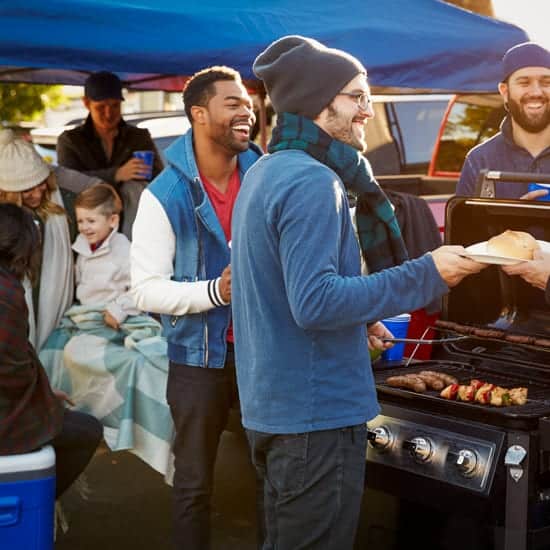
Burnett & Williams’ Personal Injury lawyers are on a mission to help you avoid needing a Personal Injury lawyer. But if you ever do need us, we’re here, and we’ve got your back. Call us for a free consultation, (703) 777-1650, or contact us on the web.
Get a Personal Injury Lawyer’s advice about car insurance coverage.
We see far too many good people in bad situations where their coverage is woefully inadequate for the damages incurred. Read our article: What You Should Know About Car Insurance From Personal Injury Lawyers.
Also, if a group that you represent is interested in learning about selecting suitable vehicle insurance coverage, please contact our Leesburg office at (703) 777-1650 to schedule a presentation.
